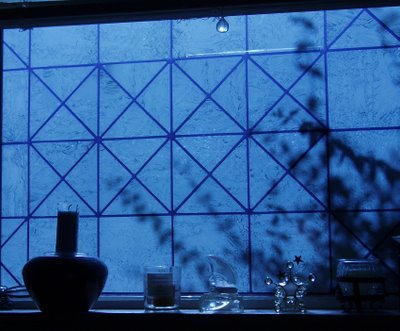
"You are so pleasure-centric," he said.
It was a complaint. One I have heard from others over the years.
"What is wrong with being pleasure-centric?" I asked, genuinely puzzled. I ran my hand lightly down his forearm and threaded my fingers through his. He is intelligent and articulate, this one. Perhaps he can help me to understand.
"Nothing, so long as I don't have to be, too."
Ah, I thought, finally, someone who is accepting of my hedonistic nature.
But my joy faded when he added, "The whole concept of being pleasure-oriented... it upsets me."
"Why?" I asked.
"That is a very complex question to answer," he replied.
"That is not an answer, Gabriel, its a cop-out. Please explain?" I asked again. Surely he, of all people, must be self-aware enough about his discomfort to explain it to me.
I released his hand and ran my fingers through my hair before massaging the back of my neck. It felt good, making me tingle. I pressed two fingers into a small knot and sighed deliriously as I leaned my head back to deepen the pressure. After about thirty seconds, I straightened my neck and tucked my thumbs in my belt loops, assuming a patient stance.
Silence.
I waited some more.
He did not answer.
He struggled, but he could not put into words the reasons for his discomfort with my shameless enjoyment of the sensuous immediacy of every waking moment. I think it has to do with the Mennonite values his mother passed on to him, even though she married and raised her children outside her 'faith.' Puritanism prevails in North America, and with it, the concept that life must be wrung dry of all that is pleasurable in it in order to be worthy of the rewards of the after-life. I was reminded of what Nietzsche had said: "The Christian resolution to find the world ugly and bad has made the world ugly and bad." And I remembered my conviction that if there is a God, there could be no greater insult to a deity than to shun and revile Creation. I was born into this world, I was given this life, this body, these senses, and it is only fitting that I live it to the fullest of my meager abilities.
Into the silence I said, "We all act out of our own self-interest, Gabe. The fundamental drive of the unconscious is the Pleasure Principle. Read up on your Freud. I'm just more aware of it than the masses, and certainly at lot less hung-up on doing what makes me feel good. It is a hedonistic, pleasure-centric approach to life, and I'm unapologetic about it--and probably happier than most people as a result."
"It just doesn't seem ethical, or moral, or something like that," he complained, oddly inarticulate. He held out his hand and started ticking things off on his fingers. "You masturbate more than anyone I know, Kay, male or female. You eat a pear like you are having an orgasm, and when you give me a taste, its just a pear. You use real whipping cream in your coffee--its just too decadent--and besides, aren't you worried about your cholesterol? And then, there is the fact that you act like a child. You stop in the middle of the sidewalk to watch leaves fall or a caterpillar cross. You spend hours down by the river doing nothing when you could be furthering your career." He threw his hands up in the air and gave me a frustrated look. "And what the hell is meditation anyway?"
I took Gabriel's hand, held it between both of mine. I could feel the coolness of his skin, the smoothness of his palm, the long, tapered fingers with their blunt nails. A lovely, well-cared for, expressive hand. It and its pair wreak such divine havoc on my senses sometimes.
"Close your eyes," I told him, and he did.
I held his hand for a moment, took a centering breath, then lifted it to my mouth. I kept my eyes on his face as I breathed on his hand, a warm, moist breath just millimeters from his skin. He sighed, started to open his eyes. I made an irritated noise in my throat and he closed them again, tightly. I rotated his hand and touched the prominent wrist bone lightly with my tongue, then pursed my lips and inhaled. Cool air washed over his skin and his unique scent flooded my senses. He gasped at the temperature contrast and shivered. I watched the hairs rise, and
gooseflesh pebble his skin. I moved again, and this time I kissed that fleshy spot between thumb and forefinger, a nice, moist kiss with full lips, slightly parted. He moaned. I lowered his hand. My eyes picked out the bulge that had sprung up in his pants, and I smiled inwardly.
"Open your eyes," I said softly. "How did that feel?"
"Great," he answered with a smile, his eyes glowing.
"And this?" I asked, repeating my earlier actions, but without the attentiveness and languid timing. "How did that feel?"
His brows drew together and he gave a little shrug. "
Ok. Nice, I guess."
"What made the difference between 'great' and 'nice', Gabe?"
"Great was... slower," he said thoughtfully.
"And what else?"
"It was..." he closed his eyes, trying to remember. "It was... more..."
"More what, Gabriel?"
"More intense."
"I eat my pears the first way, sweetie," I gave his fingers a squeeze. "You eat yours the second way."
He pulled his hand away from mine and frowned. "I don't get it."
I sighed in frustration and raised a hand to rub the back of my neck. The world needs more sensualists, I thought to myself, instead of self-absorbed moralists.
Questions poured out of me in a torrential, impassioned speech. "What is so wrong with being aware of the world, with savoring it? What is wrong with being sensitive to shades of colour and texture, to the subtlety of sounds, to the brush of
someone's hand on my skin? What is wrong with swooning over my first bite into a ripe pear? Why is it wrong that I enjoy the scents that others don't bother to smell?"
I looked at him, and I could feel my frustration and bafflement welling up. I took a deep breath, noticed my shoulders were raised and consciously dropped them. Took another deep, calming breath.
"Am I too indulgent in the sensual, at the expense of something more important, Gabe? I work, I pay my bills, I contribute to causes I believe in. I take time to contemplate the meaning of life. I rarely say unkind words, think unkind thoughts, do unkind things. Yes, with a little more ambition, I could further my career. Yes, if I played less, I would 'have' more. But what for? I don't want like most people do. I don't feel the need to go shopping in order to assuage that restlessness that so many people seem to feel. I rarely feel trapped, unhappy, unworthy. I like my life. I like who I am. I am, for the most part, comfortable in my own skin."
He pulled me close to him, his hands sliding down over my hips until they cupped my ass. He kissed the side of my neck, running his lips along my flesh.
"I'm comfortable in your skin, too," he murmured, making me shiver as his breath puffed near my ear.
Son of a bitch! I grumbled to myself. I tilted my head back, exposing more of my neck to his mouth. He complains about me being too pleasure-centric, but he's not above using it to distract me from an argument.
His lips traced the muscle extending from behind my ear down to the hollow of my throat. He pressed his tongue there, then nibbled along my collarbone as far as the neckline of my blouse would permit. The nip of his teeth made me suck in my breath, made my nipples hard. His hand came up, brushing the underside of my breast, and then he ran this thumbnail over the hardened point. The pleasure haze rose in my mind like mist from my flesh, clouding coherent thought. I leaned forward and sank my teeth into that place where the neck and shoulder meet, and he made a
sibilant hissing noise that turned my arousal-level up another notch.
He twisted one of my arms behind me, making me arch against him. I could feel his sex pressing against my belly, hard and thick, and I wanted him then, I wanted him so much that my breath starting coming in those tell-tale shallow puffs, the
precursors to panting and dizziness. I ground myself against him and whimpered, knowing he would make me suffer for my pleasure-seeking ways. And wanting it.
When it comes to pleasure, men get the short end of the stick, I think. I've queried most of my friends, and I've decided that, as a general rule, men are results-oriented pleasure-seekers and women are process-oriented pleasure seekers. Most men get aroused and orgasm, all very quickly. They want the big-bang, the ultimate
superfeeling, and they want it now. Theirs is results-oriented pleasure. Whatever it takes to "get 'er done." Women get aroused, sometimes slowly, sometimes quickly, and orgasm usually takes time, but orgasm itself is not the ultimate goal. The pleasure is in the arousal itself, in the slow build of orgasmic tension and its slow decline. During sex a woman may not orgasm or she may, or she may do so many times, but the emphasis for her is actually on intimacy and the arousal process--on feeling good for as long as possible--not on achieving climax.
And then there is me.
I do so love to suffer pleasure, though most people do not seem to understand what I mean by that. In the Buddhist sense I am very attached to pleasure, and attachment is a source of suffering, but that is far too psychological a reasoning behind my use of that expression. No, I suffer because my senses are very acute. One side-effect of this acuity is that I am multi-orgasmic. I come readily and often. The other side-effect is that I am hyper-sensitive and thus easily over-stimulated, and there are times when I have gone from urgently aroused to rampantly irritable in a split second. It usually happens when I have not been allowed to come, when I have been kept on the edge of orgasm for too long. The frustration builds, the frisson of sexual tension stretching out like an elastic band until my nerves are quivering and something in me finally snaps. When that happens, I am done. So very done, and there is no reclaiming my arousal. And so it is that I seek and suffer pleasure, riding the tides of my sexual energy, enjoying the teasing and slow buildup to frequent and intense orgasms, savouring each one, knowing that at any moment my lover may commit the fatal error that sinks both our ships.
And Gabe knew this, he knew this because he was my friend as well as my lover, and we had talked for many an hour about sensuality and sexuality and the perversion of both in our culture. When we became lovers he delighted in making me come quickly and urgently until I plateaued, and then he would keep me on edge for forty-five minutes, an hour, sometimes longer, until he pushed the erotic button that sent me toppling over the side into a shockingly intense orgasm that robbed me of all sensibility and left me limp as a slumbering kitten.
Gabriel liked to push the pleasure-envelope with me. And on this particular evening, my demonstration of sensual attentiveness as the key to my hedonism goaded him to new heights...
Labels: erotica, eroticism, masturbation, philosophy, sensual immediacy, story









 Silkenvoice" border="0">
Silkenvoice" border="0">








